Empathy is a Frontline of Human Evolution
Empathy is an expanding field of interest, encompassing research, development, and application across various domains. Coined in its current meaning in 1951, empathy represents a new human capacity that is still in its infancy and evolving. Conscious empathy is rapidly becoming both an ideal and an essential skill globally.
Join us for the International Empathy Conference at Skola Empatie! Explore how empathy is shaping the future of human evolution with 10 expert speakers. This unique empathy-focused event will uncover the importance of empathy in various fields, offering valuable insights and practical strategies for implementing empathy in today’s world. Don’t miss this opportunity to deepen your understanding and be part of the conversation at the forefront of global change.
Speakers
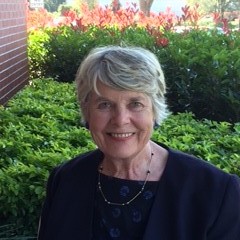
Joanna Jaaniste, PhD
Empathic response in dementia:
A journey alongside Anthroposophia
Joanna welcomes the opportunity to bring together her reflections on working with people with dementia in the arts therapies, as well as tracing the learning experience they have offered her about empathic response. She is indebted to the work of Rudolf Steiner in this process, and to the wise thinkers like Husserl and Merleau-Ponty who showed us the phenomenological path of observation. She is passionate about the importance of an understanding of the stages of spiritual development that occurs in a whole human life when working with elders, even when they have dementia. By sharing vignettes of her work with the generous people who have co-created with her, she wishes to bring conference participants into an empathic dramatherapy healing process.
Joanna Jaaniste has 31 years experience as a dramatherapist. She is an Adjunct Fellow of Western Sydney University where she has worked for many years in various capacities with the students on the Master of Art Therapy course.
She teaches on the Master of Creative Arts Therapy course at the University of Melbourne and has a small private practice. Joanna has co-created a dramatherapy Graduate Diploma curriculum for IKON Australia. She worked for 20 years in the mental health sector and also with addiction and adolescents at risk and now gives supervision to other arts therapists. Joanna is passionate about the ability of art and dramatherapy to help people in a trauma-informed way to celebrate new ways of being, to grieve past losses and to work creatively with any present issues. Joanna has published widely in peer-reviewed journals, giving presentations at conferences and training courses around the world, especially in her home country of Australia. In 2023 she published a book suitable for counsellors and creative arts therapists on her work with people with dementia.
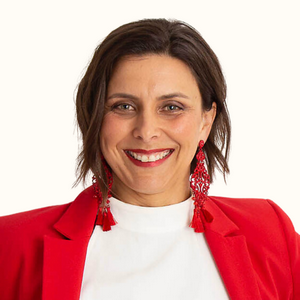
Leanne Butterworth
The practical application and benefits of healthy empathy within a business context
We’re all aware that empathy is something we’re supposed to do or be. However, when seeking to practice empathy at work, we often face a significant challenge: a lack of common language and understanding of how to practice empathy in a healthy and sustainable way. This absence can lead to confusion, disagreement, and even avoidance of empathic interactions which can alienate employees, deter clients, and reduce productivity. By acknowledging this barrier and actively working to overcome it, we can unlock the potential of healthy empathy to create inclusive and welcoming organisations and communities. A common language for healthy empathy enables us to communicate effectively and build empathetic relationships with colleagues and clients alike. This presentation will explore the practical application and benefits of healthy empathy within a business context, emphasising its three key types: emotional, cognitive and compassionate empathy.
Leanne Butterworth is an empathy educator, TEDx speaker, author and university lecturer. As founder of social enterprise Empathy First, she is dedicated to developing happier, healthier, more connected workplaces and communities through memorable,
accessible Empathy Training. Leanne holds a degree in Exercise Physiology (UQ) and a postgraduate certificate in Business (Nonprofit and Philanthropy – QUT). Her accolades include a George Alexander Foundation Scholarship, membership in the Australian Social Impact Fellowship, recognition by His Royal Highness, the Duke of York, and winner of the 2023 Women Changing the World People’s Choice Social Enterprise Award. She is also a contributing author in the upcoming anthology Women Making a Difference.
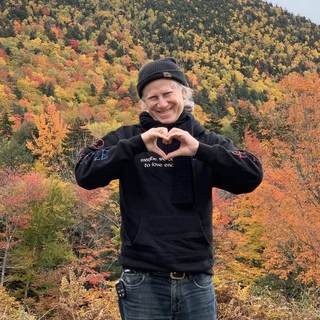
Rainbow Rosenbloom
Radical Empathy: Emptying yourself to provide space for others
The concept of allowing the experience of another to truly be felt within, in such a way as to evoke a visceral response, is completely foreign to most. We can often sympathize with another, to hear of their story of grief, their celebration of joy, and to join them in a state of complete understanding. But radical empathy describes much more; it speaks about displacing one’s own feelings, one’s own thoughts, in order to invite, to welcome, to imagine…..the experience of the other. Radical Empathy then becomes more than a concept, more than a mere description; it becomes a practice, a spiritual path, where one sensitizes oneself to such a degree that an alchemy occurs. This alchemy allows a deepening so powerful that love enters into the heart as often as air breathes the lungs.
Rainbow Rosenbloom founded Live Education! in the fall of 1997, after 12 years of working with homeschooling families and co-ops, both privately and within the public schools. He studied Waldorf Education at Emerson College in England and
worked as a class teacher and a high school teacher in several Waldorf schools. Rainbow also helped to construct an innovative Waldorf charter school program in Monterey, CA and served as its director for 3 years. He has a BA in Philosophy from The University of Tulsa and a Masters degree in Education from Harvard, where he studied Multiple Intelligence Theory with Howard Gardner.
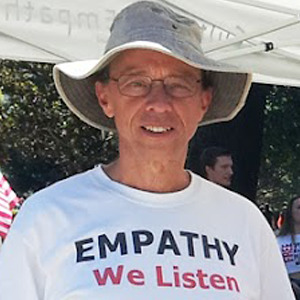
Edwin Rutsch
Empathy Circles: The Foundational Practice of the Empathy Movement
Empathy Circles are a foundational empathy building practice where participants take turns speaking and practicing active listening in small groups. Edwin will talk about the Empathy Circle and model how it works. His goal is to train each person in the world how to take part in and facilitate an empathy circle.
Edwin Rutsch is the founding director of The Empathy Center. The Center is developing an empathy based retreat center on a former Catholic Seminary property located on 35 acres with 55,000 square feet of buildings overlooking beautiful Santa
Barbara, California and the ocean. The Centers mission is to build a movement to raise the level of mutual empathy in the world through education and community initiatives. Edwin has been working on this mission for the past 15 years. A few of his projects include; creating the internet’s largest empathy related website, interviewing hundreds of world empathy experts, hosting Empathy Summits, and developing Empathy building practices and trainings. He also started the Empathy Tent which goes out to public spaces and offers listening and conflict resolution. Edwin hopes to inspire you to join this movement and transform the world.

Anne Bass
Seeing, Hearing and Knowing the World through Imitation: Empathy and the young child
“There was a time when meadow, grove, and stream, The earth, and every common sight, To me did seem Apparelled in celestial light, The glory and the freshness of a dream.” This beginning stanza from William Wordsworth’s poem Ode to Intimations of Immortality, suggest that a child’s experience of the world is uniquely different from that of an adult. Drawing on my experience as a Waldorf Early years teacher, a mother and a Psychophonetics practitioner, I suggest that to behold the world as a child does, we must also learn to behold ourselves anew. The way we behold a child, in turn, creates the foundation for their learning and development. The child’s capacity for Imitation is rooted in love for the world, and most especially,for the human community it has come to..
Born in America, Anne moved to live and work in the UK and found her way to a Camphill community for children with special needs, where she embarked on the Foundation year in Curative Education, and worked in a curative setting with adolescents.
Later, Anne completed her kindergarten training and worked as a teacher in the Edinburgh Steiner School Kindergarten. After having her last of 3 children turn 3 years, Anne joined the training in Psychophonetics with the wish to support others on a path of self-development.
Anne has a special interest in working with parents, and with adolescents and children, which is enhanced and enriched by her experience as a counsellor, qualifying in 2013 as a Psychophonetics Practitioner. This has been complemented in recent years by training and qualification as a Sensory Integration Screener with the HANDLE Institute. Alongside counselling I currently run parent and child groups in Stroud, England.
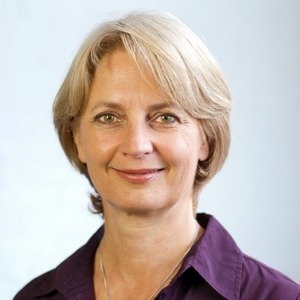
Katherine Train PhD
Opportunities for empathy in human-centred design in organisations
Empathy is one of seven key mindsets described by the global design company Ideo to guide human-centered design. By extension empathy is given prime position as a phase in numerous design methodologies. The popularity of these design traditions is widespread across sectors in education, business and government. In this talk I’ll talk about my experiences with empathy in design in organisations, together with some of the shortcomings in the current landscape and opportunities to deepen the practice and encourage humanized workplaces.
Katherine Train is co-founder, trainer and facilitator at Empathic Intervision.
With a background in pharmacy practice, she completed her PhD as a foundation for empathy practice in organisations within and across sectors.
She works with empathy as an essential skill in professional development, wellbeing, design and prevention of compassion fatigue and burnout in the corporate, NGO and public sector.These skills are applied to leadership, teamwork, diversity, tolerance and ethical decision making. Her special interest has been in the application of empathy in organizations in South Africa during a time when South Africa is emerging as a democracy with all the challenges and opportunities that go with its cultural, social and resource diversity.

Mick Young
Hidden aspects of bereavement counselling: Acknowledgment of the existence of those who have died
Mick Young is an Australian born spiritual development coach and counsellor specialising in bereavement and grief from an Anthroposophical perspective. He is the creator of the Staying Connected Program which helps people develop
their connection with loved ones who have died as part of their healing. He is a long time student of Rudolf Steiner’s work and studied at the Seminary of the Christian Community in Hamburg, Germany. He now lives in Devon, UK with his wife and two children.
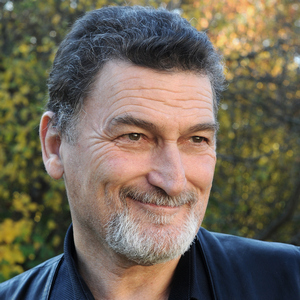
Yehuda Tagar
Empathy is the cutting edge of evolution in the 21st century
We are using the term empathy for 73 years but its full cultural reality I in its infancy. The future of humanity is empathy – if humanity has a future at all. Its further development can only be the conscious initiative of individuals, requiring deep personal transformation as a basis for humanizing social development. We are surrounded by a reality greater than the one accessible to physical sense organs. The further evolution of empathy requires the conscious cultivation of the higher sense organs of Imagination, Inspiration and Intuition for the seeing, hearing and knowing people and nature. This is the threshold on which we stand today in all aspects of human life on earth.
Yehuda Tagar is an international practitioner and trainer of counselling and psychotherapy, founder of Psychophonetics, a development of Rudolf Steiner’s Psychosophy, and of Methodical Empathy. He is the director of Psychophonetics Institute
International in Slovakia, UK, South Africa and China.
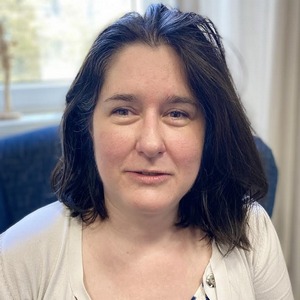
Jana Múdra
Drama as a Powerful Tool for Empathy
The ancient Greek philosopher Socrates famously said, “All knowledge is self-knowledge.” Interestingly, drama also traces its origins back to 5th century BC Greece. Is it possible that these ancient teachings can still offer something essential to us today? I propose that the idea of self-knowledge can be expanded to include self-empathy and that drama, as a form of self-exploration, can be a powerful tool for developing empathy toward others.
If we accept the claim that “all knowledge is self-knowledge,” we can also ask: is all empathy a form of self-empathy? In other words, can our ability to empathize with others only grow from our own self-awareness? I will explore how drama, as a medium, allows individuals to deeply engage with themselves, opening the door to empathy for others.
In my study and work with Psychophonetics, a therapeutic and developmental Approaches to human development combining expressive arts and anthroposophic psychology, I discovered this connection between drama, self-awareness, and empathy. I have since applied this understanding in training programs not only for counselors but also for teachers and as a part of the initiation training at the School of Empathy. In this talk, I will share insights from my work, offering examples of how drama can cultivate both self-empathy and empathy for others, helping individuals build deeper connections in their personal and professional lives.
Jana Múdra is a Psychophonetics counsellor and consultant, co-teacher in Škola Empatie, Slovakia. For more than 20 years she has worked in education of children and adults using blocks in empathy as opportunitoes for personal and professional
development. In the past 10 years she has benefited from the beauty and efficiency of Psychophonetics and drama in her life and career.
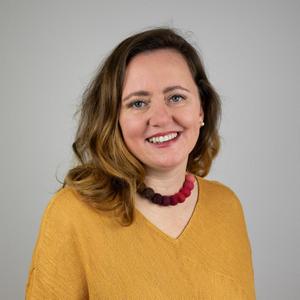
Martina Mózsi
Partners intimacy
You will have the opportunity to experience and diagnose yourself how your relationship is doing in the area of intimacy. What types of intimacy are there in the relationship and what is their current level of fulfillment. We will also focus on how to connect more deeply with your partner and, with the help of these intimacies, come to empathy in a mutual relationship.
Psychologist, graduate of psychotherapeutic training in family therapy according to V. Satirova and Waldorf pedagogy.
Agenda
- All times are CEST / UTC+2
- Structure: 45min lecture + 15min Q&A
Friday, 4th October 2024 – 1st day of the conference
- 18:00-20:00 – Opening of the conference
Saturday, 5th October 2024 – 2nd day of the conference
morning
- 9:00-9:15 – Welcome
- 9:15-10:15 – Yehuda Tagar – Empathy is the cutting edge of evolution in the 21st century
- 10:30-11:30 – Katherine Train – Opportunities for empathy in human-centred design in organisations
- 11:45-12:45 – Mick Young – Hidden aspects of bereavement counselling
afternoon
- 15:00-16:00 – Jana Múdra – Drama as a Powerful Tool for Empathy
- 16:15-17:15 – Edwin Rutsch – Empathy Circles: The Foundational Practice of the Empathy Movement
- 17:00-18:00 – Yehuda Tagar – moderated discussion
Sunday, 6th October 2024 – 3rd day of the conference
morning
- 9:00-9:15 – Welcome
- 9:15-10:15 – Joanna Jaaniste – Empathic response in dementia: A journey alongside Anthroposophia
- 10:30-11:30 – Leanne Butterworth – The practical application and benefits of healthy empathy within a business context
- 11:45-12:45 – Anne Bass – Seeing, Hearing, and Knowing the World through Imitation Empathy and the young child-the challenge and potential in education
afternoon
- 15:00-16:00 – Martina Mózsi – Partners intimacy
- 16:15-17:15 – Rainbow Rosenbloom – Radical Empathy Emptying yourself to provide space for others
- 17:00-18:00 – Conclusion of the Conference
Organizational info
- Date: 4th-6th October 2024
- Language: English
- Venue: Online
Price
- Public – 60 €
- IAPP members and students of School of Empathy – 40 €
- Overseas participation (1/2 day attendance) – 40 €
- Contributors – free of charge
Looking forward to meeting you!

